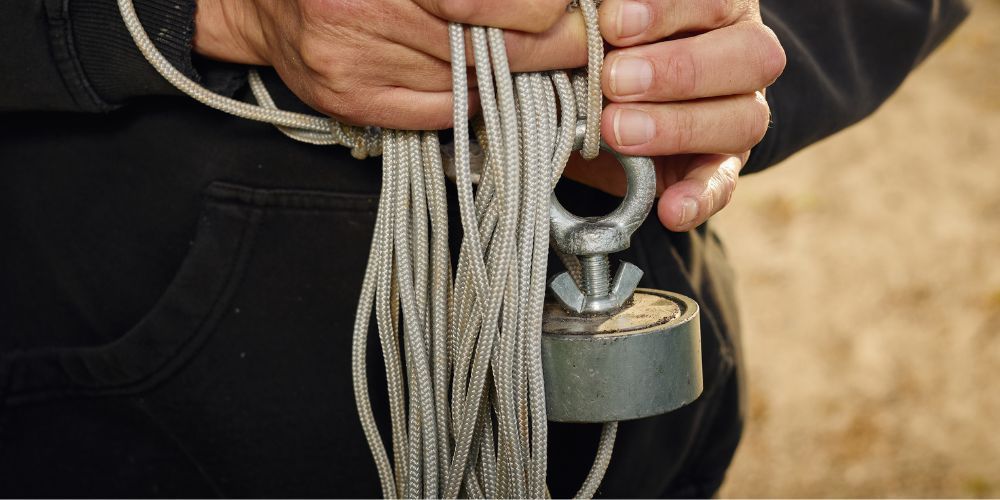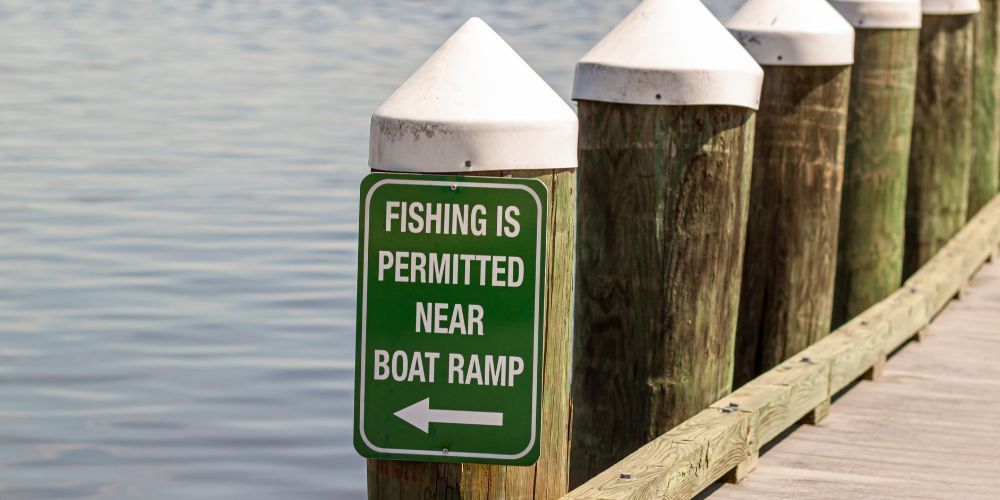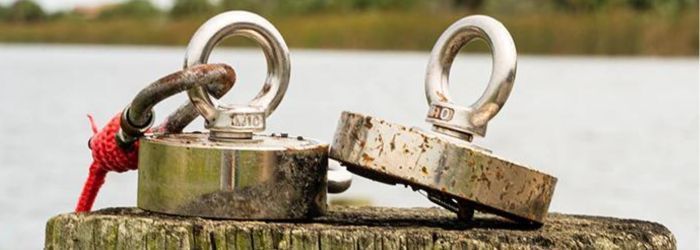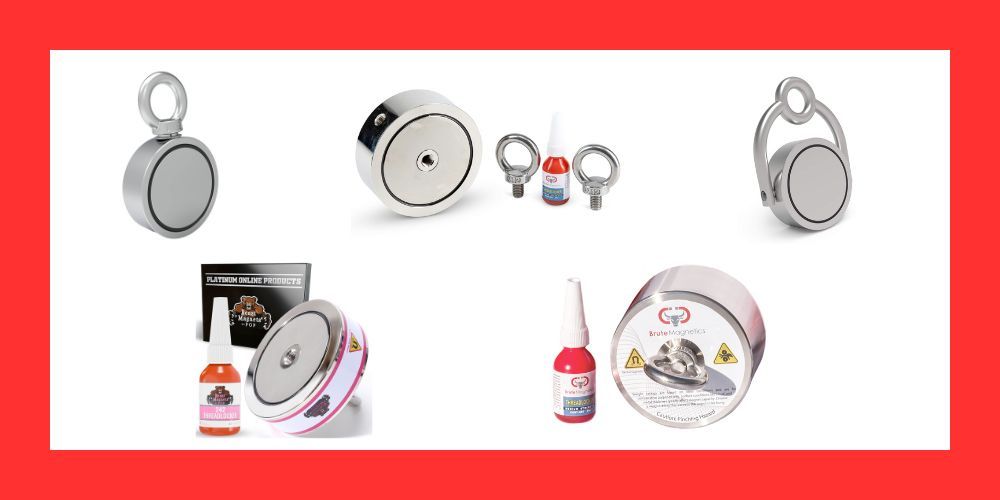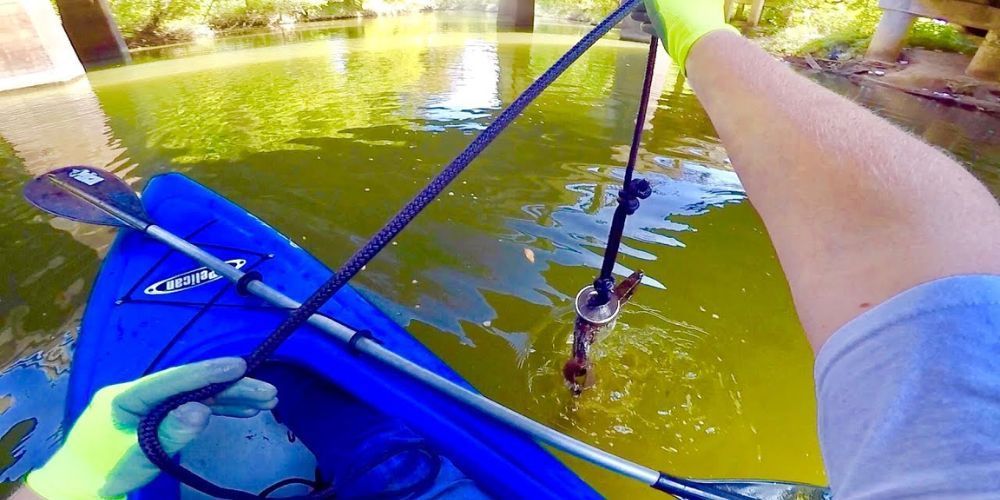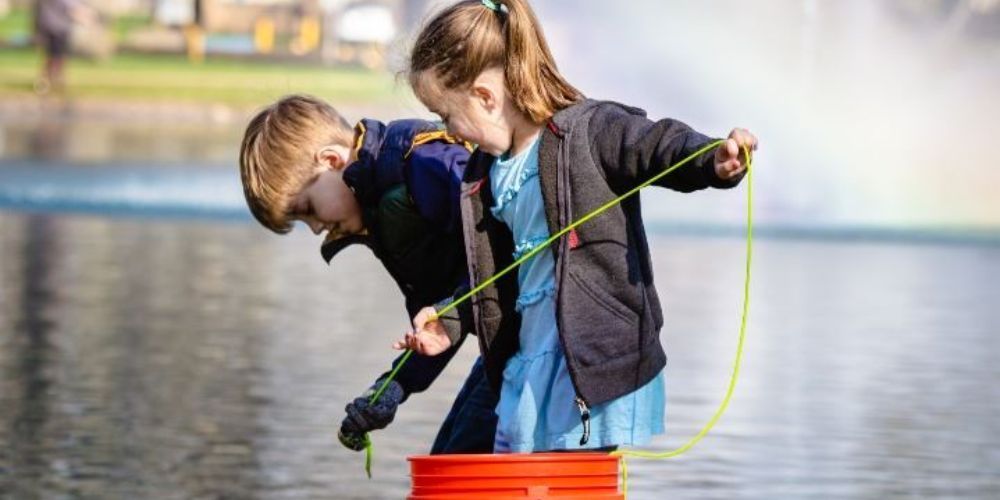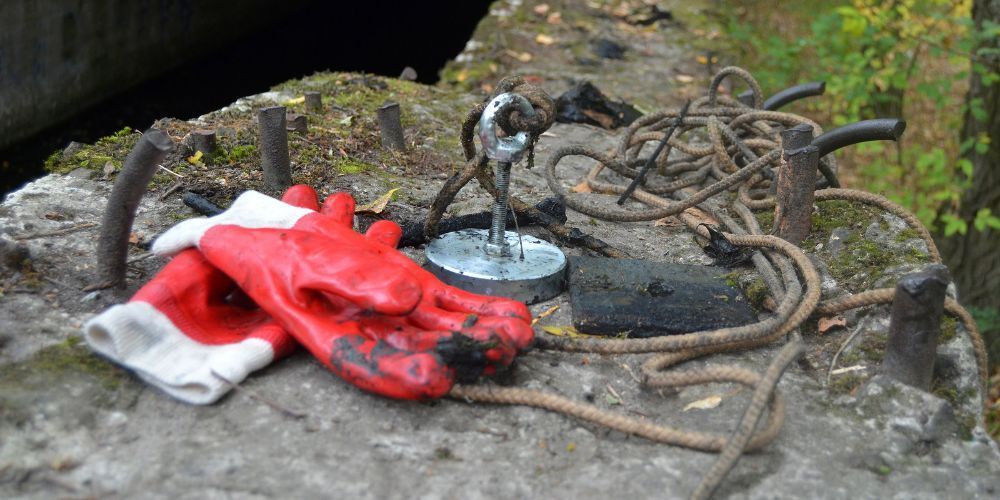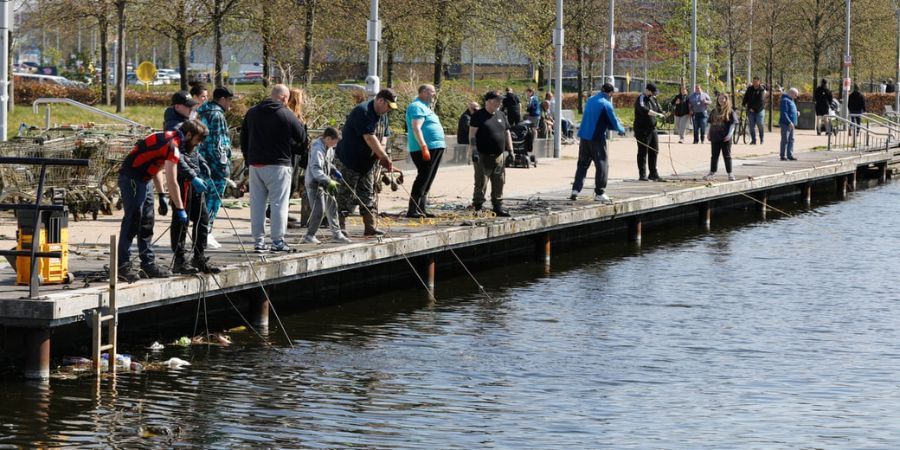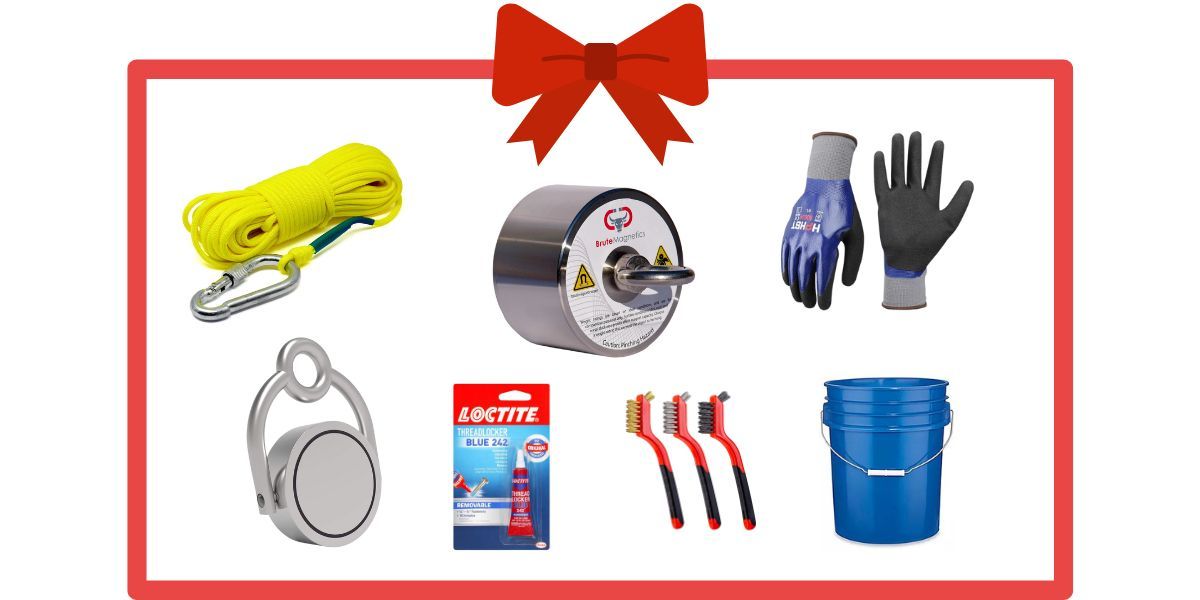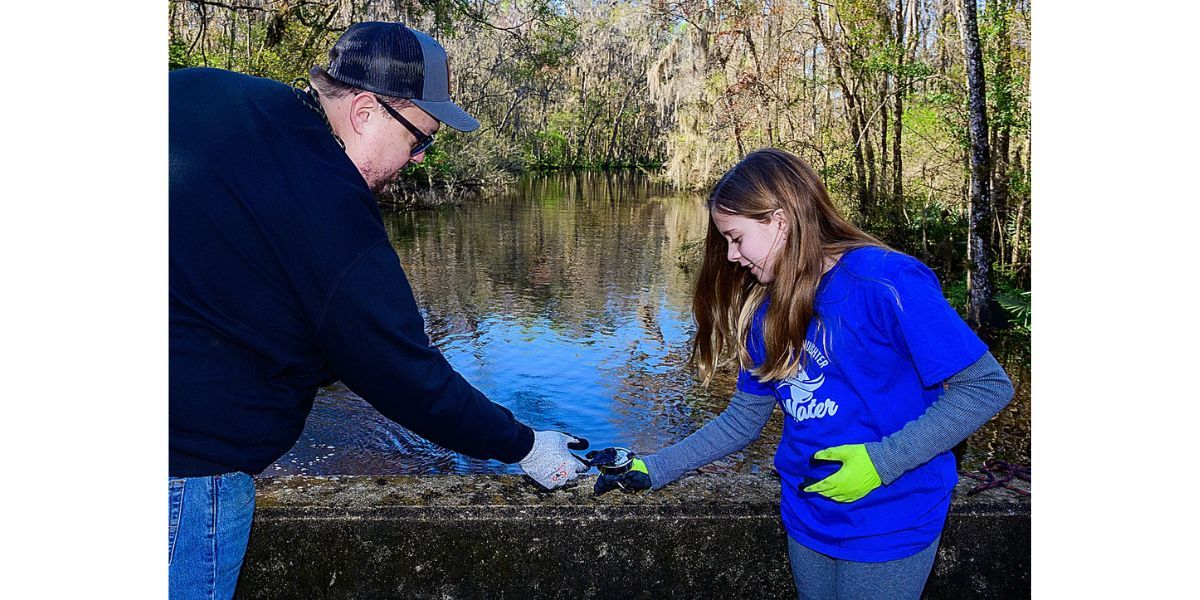The Ultimate Packing Guide for Magnet Fishing: Tips, Essentials, and Gear
Embarking on a magnet fishing expedition offers more than just outdoor joy; it's an entryway into history's hidden remnants resting underwater. For enthusiasts keen on unearthing lost treasures, the packing process is crucial and cannot be overlooked. Imagine pulling up an age-worn artifact only to realize you’re missing the essential tools to retrieve or clean it properly. This stark realization highlights the need for careful planning.
With years of research focused precisely on making these trips efficient and rewarding, we've compiled this guide to cover every detail - down to the best storage solutions and knot techniques. Magnet fishing isn’t merely casting hope into unknown waters; it's about strategy, precision, and having reliable gear by your side.
When preparing for a magnet fishing trip, make sure to pack essentials such as a neodymium fishing magnet (minimum 500 pounds pulling force), nylon or synthetic rope, gloves for handling rusty metal, and a grappling hook or pole hook for pulling up larger finds. Additionally, consider bringing a cardboard box or five-gallon bucket for storing gear and finds, as well as a tupperware food container for hooks and lures.
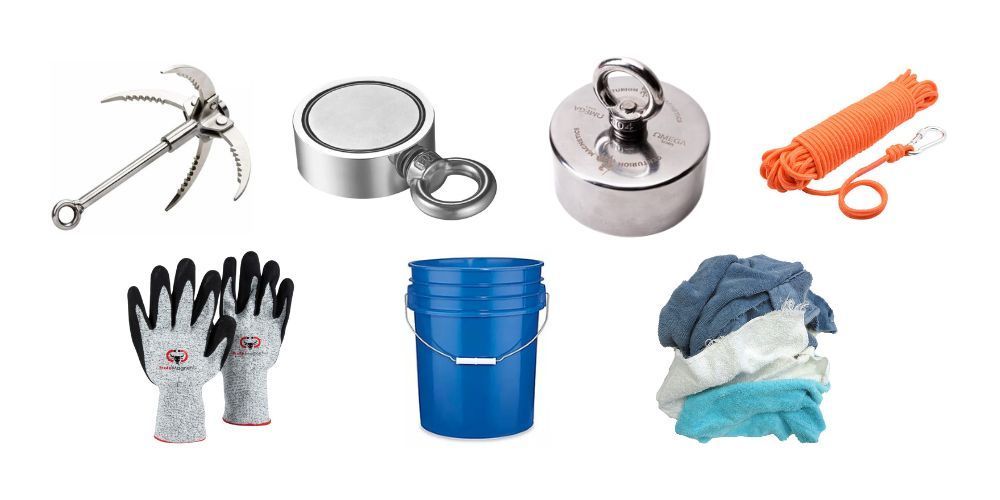
Essential Gear for Magnet Fishing
When it comes to magnet fishing, the right gear makes all the difference. Each piece plays a crucial role in the success and safety of your magnetic adventure.
The Mighty Magnet
The heart of your magnet fishing gear lies in the magnet itself. It needs to be powerful enough to pull metal items from underneath the water. A neodymium magnet with a minimum pulling force of 500 pounds is a reliable choice. Brute Magnetics offers sturdy options designed for this purpose. This robust magnet will ensure that you can retrieve various metal objects, from smaller items like coins and bolts to larger finds like bikes or tools, with ease.
The quality of the magnet is crucial. A strong neodymium magnet provides the pulling force required to lift metallic items from the depths of bodies of water. Look for a well-rated product that ensures durability and efficiency, enabling you to engage in this captivating activity without worry about losing valuable finds due to insufficient magnetic power.
Rope Reliability
Choosing the right rope is as essential as selecting the right magnet. Opt for a nylon or synthetic rope that is at least 3/8-inch thick and around 100 feet long. The Solid Braid Nylon Rope by SGT KNOTS is highly regarded for its strength and durability, providing reliability when pulling up heavier objects. This sturdy rope not only ensures your safety while hoisting finds but also offers the necessary support for navigating various magnet fishing locations.
The rope serves as your lifeline during magnet fishing expeditions, making it vital to select a high-quality option that can withstand pressure without compromising on performance. Its durability and strength are paramount considerations, ensuring that it can withstand the demands of lifting various metal objects while providing sufficient length for versatile use in different environments, such as bridges, piers, or river mouths.
Grappling Hook Galore
A grappling hook is an indispensable tool for retrieving larger or oddly shaped finds that may be challenging to pull up using just the magnet alone. When selecting a grappling hook, prioritize sturdiness to ensure it can handle the weight and leverage required for successful extraction. This versatile tool serves as an invaluable asset, especially when aiming to recover sizeable or challenging discoveries.
Imagine finding an intriguing item resting at the bottom of a river—a grappling hook becomes your trusty assistant in snaring and lifting these hidden treasures. By providing additional support in maneuvering sizable or unconventional finds, it enhances your ability to explore diverse areas and uncover an assortment of fascinating remnants lurking beneath the water's surface.
Organized Storage Solutions
To keep your magnetic finds organized and your vehicle clean, utilizing a large storage container such as a five-gallon bucket or a sturdy bag is imperative. These containers not only facilitate efficient transport but also help in categorizing and safeguarding your discoveries while minimizing clutter during pack-up after each excursion.
Armed with these essential gear components, you are well-prepared to embark on thrilling magnet fishing adventures equipped with reliable tools that enhance both your safety and success potential.
Choosing the Right Magnets and Ropes
When it comes to magnet fishing, the right magnet is crucial for a successful outing. You need a strong magnet that can pull up heavy finds from underwater. Neodymium magnets are the go-to choice for this purpose due to their extraordinary pull force. For instance, an 1,200-pound pull like the Brute Magnetics magnet is exceptional for securing heavy items from below.
The pull force of neodymium magnets is measured in pounds, with higher numbers indicating more powerful magnets. Selecting a neodymium magnet with a high pull force will allow you to retrieve larger and heavier objects, making it worth investing in a potent magnet upfront.
Ropes: Material and Thickness
Now onto the ropes—essential for handling the weight your magnet can pull up. Nylon or polyester ropes are ideal due to their water-resistant nature and low stretch, which makes them perfect for magnet fishing excursions. Opt for a 3/8-inch diameter rope as it provides durability and reduces the risk of snapping under strain, crucial considering the potential weight of your finds.
It's vital to choose a rope with minimal stretch to prevent breakage under pressure. Additionally, nylon ropes are resistant to wear and tear from outdoor elements, ensuring prolonged use during your magnet fishing expeditions.
Knot Knowledge
Once you've got your magnet and rope sorted, it's time to secure them together with a reliable knot. The figure-eight follow-through knot or double fishermen’s knot are popular choices for attaching the magnet to the rope due to their reliability in maintaining a strong hold. Master these knots before heading out to confidently rely on their strength when pulling up metal objects from various bodies of water.
In summary, investing in high-pull neodymium magnets, durable nylon or polyester ropes, and mastering reliable knot tying techniques will undoubtedly enhance your magnet fishing experience and increase your chances of retrieving intriguing treasures from underwater locations.
In this guide, we've tackled essential gear such as magnets and ropes. Now, let's move on to exploring the critical aspects of protective equipment and clothing for a safe and successful magnet fishing adventure.
Protective Equipment and Clothing
Protective gear and clothing serve as a shield, keeping you safe while you're out there casting your magnet. It's all about staying safe and comfortable so you can focus on the thrill of what you might discover.
Gloves, the Unsung Heroes
A good pair of gloves is essential. Heavy-duty gloves are vital because they protect your hands from sharp objects, rust, and any debris you might pull out of the water. Ideally, look for Kevlar-lined gloves as they offer unmatched cut resistance. Remember, rusty metal edges can be surprisingly sharp, so being careful here is extra important.
Remember, your hands are your most valuable tools when magnet fishing. Protecting them means you can fish longer and with more confidence, knowing that you're safeguarded against any unexpected sharp or dangerous objects lurking in the water.
Footwear for Stability
Your feet take you where you want to go, so they need protection too! Waterproof boots are crucial for keeping your feet dry and comfortable, especially if you're fishing in murky or wet conditions. These boots also provide much-needed traction on slippery surfaces, which ensures your safety near bodies of water.
Whether you're wading through shallow streams or walking along the banks of rivers, proper footwear is essential for avoiding slips and falls. Plus, having dry feet means you can stay focused on your fishing without feeling uncomfortable or distracted.
Durable Apparel
When it comes to clothes, think about long sleeves and durable pants to guard against cuts and scrapes from any debris you might encounter. Remember that you never know what's lurking beneath the water's surface, so it's best to be prepared for anything.
Long sleeves offer additional protection against unexpected encounters with rough or abrasive surfaces while durable pants prevent scratches from potentially sharp objects. Lastly, consider wearing a life jacket if you're fishing near deep or fast-moving water. This added precaution can be a lifesaver in case of unexpected emergencies.
Remember: Safety first! It's all about making sure that no matter what surprises await under the water's surface, you're ready for anything.
Preparing adequately for the excursion means assembling a compact and secure bag that contains everything necessary for a successful magnet fishing experience.
Assembling a Compact and Secure Bag
When embarking on your magnet fishing adventure, having all your gear organized and compactly packed can make the trip not just easier but safer too. Let's discuss how to ensure that your bag meets these needs.
Step I - Compartmentalized Storage
One of the first things to consider when selecting a bag is to look for one that offers multiple compartments. This will allow you to neatly organize and store different pieces of gear without them getting tangled or damaged during transportation. By assigning specific sections for your magnets, ropes, and tools, you can significantly reduce potential wear and tear as well as the likelihood of accidents while handling them during the excursion. It also makes it much easier to locate what you need without having to rummage through everything in the bag, saving you time and hassle.
Step II - Waterproof Solutions
A critical aspect to consider when packing your gear is ensuring that it remains dry throughout your trip. Using a waterproof bag or a dry sack provides essential protection against water, preventing damage to your equipment and preserving its integrity. By keeping your gear dry, you are also extending its life span and reducing the likelihood of rust developing on metal components. This step is crucial in safeguarding the functionality of your equipment over the long term.
Step III - Quick Access Items
An important consideration when preparing your bag is to place frequently used items in easily accessible pockets. For instance, storing gloves and the magnet in readily accessible compartments eliminates the need to dig through your bag mid-trip, ensuring efficiency and convenience during your magnet fishing adventure. This small adjustment can make a big difference in terms of practicality and ease of use.
By following these steps, you can ensure that all of your magnet fishing gear is safely stored, easily accessible, and well-protected. This careful approach allows you to make the most out of your magnet fishing experience without any avoidable hassles or interruptions.
Now equipped with a well-organized and secure bag, let's move on to discussing safety precautions and tips for a successful magnet fishing trip.
Safety Precautions and Tips
Ah, the thrill of magnet fishing! But amidst the excitement of uncovering hidden treasures lie potential hazards. Just like any other outdoor activity, safety should always be a top priority. So, let's go over some important precautions and tips to ensure a safe and enjoyable magnet fishing experience.
Surveying the Area and Informing Others
First things first—before casting your line, take a good look around to identify any potential hazards or risks. Look out for fast currents, submerged obstacles, or sharp objects that could pose a danger to you or others. Always inform a trustworthy person of your location and the estimated time for your return. This ensures that if something unexpected happens, help can reach you in time.
Retrieving Stuck Magnets Safely
Magnet fishing is not without its challenges, and one common issue is when your magnet gets stuck on something beneath the water. In such a situation, patience and caution are key. Instead of pulling directly and risking damage to your equipment or injury to yourself, try sliding the magnet off from the side. If that doesn't work, attempt using quick, sharp tugs from different angles to dislodge it. If the magnet remains stubbornly lodged, don't hesitate to seek assistance from others. Sometimes a collaborative effort can free the magnet without causing any harm.
Protecting Yourself from Finds
"While one man’s trash is another man’s treasure," it's essential to approach potentially hazardous finds with caution during your magnet fishing adventures.
Being Cautious of Hazardous Finds
Remain vigilant for potentially hazardous items such as unexploded ordnance or sharp objects. If you come across anything that raises concern about safety, refrain from handling it further and promptly contact local authorities or relevant experts. Maintaining a safe distance is crucial until professionals assess and handle the situation appropriately.
For instance, if you come across an unusual object that appears to be military-related or suspect it might be an explosive device, refrain from any attempts to move or manipulate it. Instead, mark the area to indicate potential danger and promptly alert emergency services for immediate intervention.
Safety isn't just about protecting yourself—it's also about ensuring the well-being of the community and environment around you. By staying mindful of these critical safety measures and guidelines, you can fully enjoy the wonders of magnet fishing while keeping everyone safe from potential dangers.
Now that we've covered essential safety precautions for
magnet fishing, let's turn our attention to discovering the best locations for this unique activity.
Read our post How to Dispose of Magnet Fishing Finds: Safety, Legal, and Environmental Considerations for proper disposal of finds you do not intend to keep.
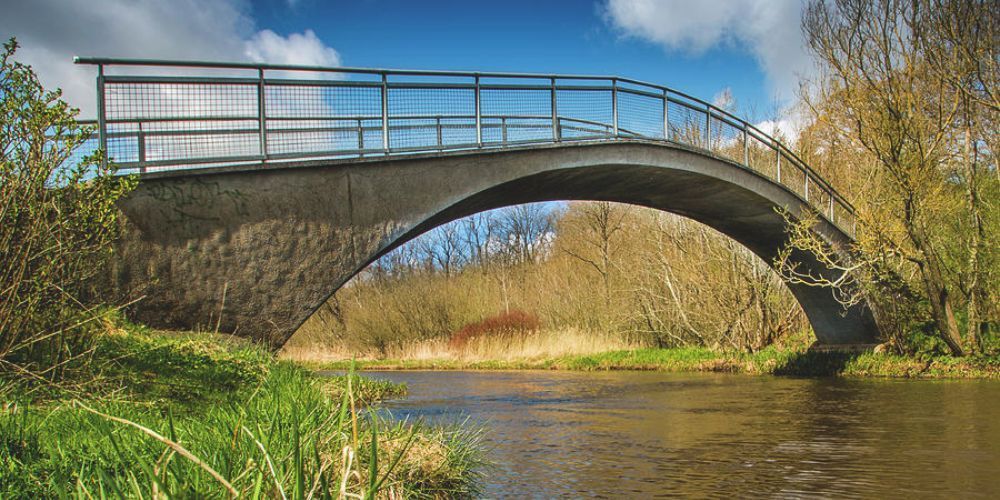
Best Locations for Magnet Fishing
Embarking on a magnet fishing adventure offers endless opportunities to discover hidden relics and treasures beneath the water's surface. Here are prime spots to consider:
Bridges, Piers, and Canals
These locations are prime for magnet fishing due to their historical significance and heavy foot traffic over the years. As individuals pass over these structures, there's a chance that various items may have fallen or been discarded into the water below. This history creates an enticing environment for magnet fishing enthusiasts seeking to uncover fascinating artifacts and trinkets from bygone eras.
Historical Sites and Busy Waterways
If you're drawn to the thrill of unraveling local history, magnet fishing at historical sites or busy waterways could prove rewarding. Areas known for significant events or high traffic in the past often yield diverse and intriguing finds. These discoveries can offer a tangible connection to the past, turning magnet fishing into a compelling blend of outdoor adventure and historical exploration.
Researching Online
The internet is a treasure trove of information when it comes to identifying new magnet fishing spots. Google Maps can help pinpoint potential locations near old trade routes or parklands, providing insight into areas that may hold long-forgotten relics waiting to be discovered. Additionally, local forums and communities can offer valuable recommendations and insider insights into lesser-known magnet fishing hotspots.
Seasonal Considerations
While magnet fishing can be enjoyable throughout the year, certain seasons offer specific advantages. Spring and fall are particularly favorable as lower water levels and reduced vegetation provide better visibility and improved access to submerged items. This makes it easier for magnet fishers to spot intriguing objects resting on the river or lake bed, enhancing the chances of unearthing captivating treasures.
With these locations in mind, you'll be well-equipped to plan your next magnet fishing escapade, ready to uncover a myriad of forgotten relics waiting beneath the waters.
Armed with knowledge of prime locations, let's now explore strategies aimed at maximizing your finds in the exhilarating world of magnet fishing.
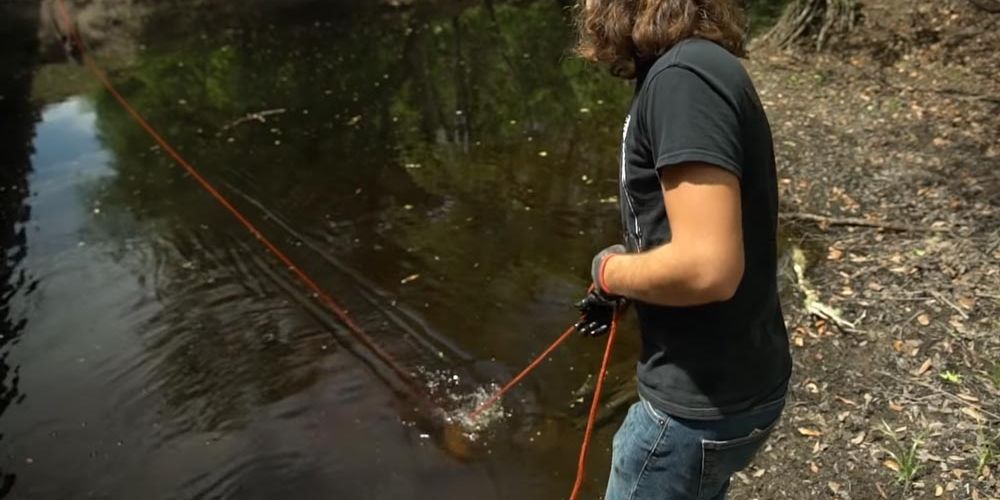
Techniques to Maximize Your Finds
Picture this: You cast your magnet into the water, hoping to catch something amazing. To ensure you have the best chance of success, it's essential to employ effective techniques. Let's explore some tried and tested methods to help you maximize your magnet fishing experience.
The Hopping Method
The hopping method is ideal for fishing from bridges and piers. It involves lifting the magnet a few inches off the bottom and dropping it down at small intervals as you move along. This technique allows you to cover more ground, increasing the likelihood of making exciting discoveries.
The Dragging Method
In contrast, when fishing in deeper bodies of water such as lakes and rivers, the dragging method is more effective. This technique involves slowly and steadily dragging the magnet along the bottom. By doing so, you can cover wider areas and have a better chance of retrieving heavier objects that may lie hidden beneath the surface.
As you drag the magnet, its powerful force attracts anything made of ferrous metal, giving you the opportunity to retrieve various items. From discarded bicycle parts to long-lost tools, this method increases your chances of uncovering intriguing objects within the watery depths.
Experiment with Multiple Angles
When searching for concealed treasures, try approaching potential hiding spots from different angles. By changing your position and adjusting your technique, you may dislodge items that didn't catch on your initial pass over an area. It's all about exploring various approaches to increase your chances of finding valuable or interesting items.
Consistency is Key
Consistency is crucial in any hobby, and magnet fishing is no different. Frequent and steady fishing trips yield better results over time. Regular visits to your favorite magnet fishing spots increase your chances of making significant finds, transforming magnet fishing from a casual pastime into a truly rewarding and fulfilling hobby.
By incorporating these techniques into your approach, you enhance your chances of discovering unique items while enjoying the outdoors. Whether you're drawn to underwater historical artifacts or simply intrigued by magnetic exploration, these methods serve as valuable tools in maximizing your magnet fishing adventures.
Mastering these techniques not only increases your chances of finding exciting items but also enriches your overall magnet fishing experience. Happy exploring!
What gear do I need to start magnet fishing?
To start magnet fishing, you’ll need some essential gear to ensure a successful and enjoyable experience. Here’s a list of the basics:
Magnet: Choose a strong neodymium magnet, as they provide the best pulling power. A double-sided magnet is often recommended for beginners due to its versatility. Make sure to select a magnet with an appropriate pulling force; typically, a 500 lb to 800 lb magnet is a good starting point.
Rope: Opt for a durable, nylon rope that’s at least 50 to 100 feet long. The thickness should be about 6mm to 10mm to provide a good grip and strength. Make sure it has a high breaking strength to handle the weight of objects your magnet might attach to.
Carabiner or Knot: Use a secure carabiner or a strong knot to attach your rope to the magnet. A Palomar or figure-eight knot is commonly recommended for its reliability.
Gloves: Wear sturdy gloves to protect your hands from sharp objects, dirty water, and the strong pull of the magnet.
Bucket or Bag: Bring a bucket or bag to carry your finds and any trash you pull out of the water. This keeps your finds organized and helps you follow the “leave no trace” principle.
Safety Gear: Consider wearing waterproof boots and a life jacket if you’re fishing from a boat or near deep water.
With this gear in hand, you’re ready to explore various waterways and discover hidden treasures.
What safety precautions should I take while magnet fishing?
Magnet fishing can be an exciting adventure, but it’s important to prioritize safety. Here are some key precautions to take:
Check Local Regulations: Before you start, research any local regulations or restrictions on magnet fishing in your area. Some places may have specific rules about where you can fish or what you can keep.
Assess the Environment: Evaluate the area where you plan to fish. Look for potential hazards like strong currents, slippery banks, or deep water. If you’re fishing from a bridge or dock, be cautious of passing vehicles or pedestrians.
Use Proper Technique: When throwing the magnet, ensure you’re standing on stable ground and have a firm grip on the rope. Avoid standing too close to the water’s edge. Throw the magnet in a controlled manner to prevent accidents.
Handle Finds Carefully: When you retrieve objects, inspect them carefully before handling them. They may have sharp edges or be covered in rust and debris. Wear gloves and use tools if necessary to handle potentially hazardous items.
Respect Wildlife: Be mindful of local wildlife and avoid disturbing their habitats. If you encounter aquatic creatures while fishing, take care to release them unharmed.
Stay Aware: If you’re fishing with others, communicate clearly and be aware of each other’s positions to avoid accidents. It’s also a good idea to let someone know where you’ll be fishing and when you expect to return.
By following these safety precautions, you can enjoy your magnet fishing adventures while minimizing risks.
How can I find the best locations for magnet fishing?
Finding the best locations for magnet fishing can greatly enhance your chances of discovering interesting items. Here are some tips to help you identify promising spots:
Research Historical Areas: Look for locations with historical significance, such as old bridges, docks, or river crossings. These places often have a rich history of human activity, increasing the likelihood of finding valuable items.
Visit Popular Fishing Spots: Areas that are popular for traditional fishing can also be great for magnet fishing. Fishermen may have lost gear or other items over time, making these spots worth exploring.
Explore Urban Waterways: Canals, rivers, and ponds in urban areas can yield intriguing finds, as these waterways often see a lot of human traffic. Look for places near parks, walking paths, or city centers.
Check Online Communities: Join magnet fishing forums or social media groups to connect with other enthusiasts. These communities can offer valuable insights and recommendations for productive locations in your area.
Experiment with Different Spots: Don’t be afraid to try various locations, even if they don’t seem obvious at first. Sometimes less frequented spots can yield unexpected treasures.
By exploring a variety of locations and leveraging community knowledge, you’ll increase your chances of finding unique and exciting items while magnet fishing.
Author: Will Flaiz


